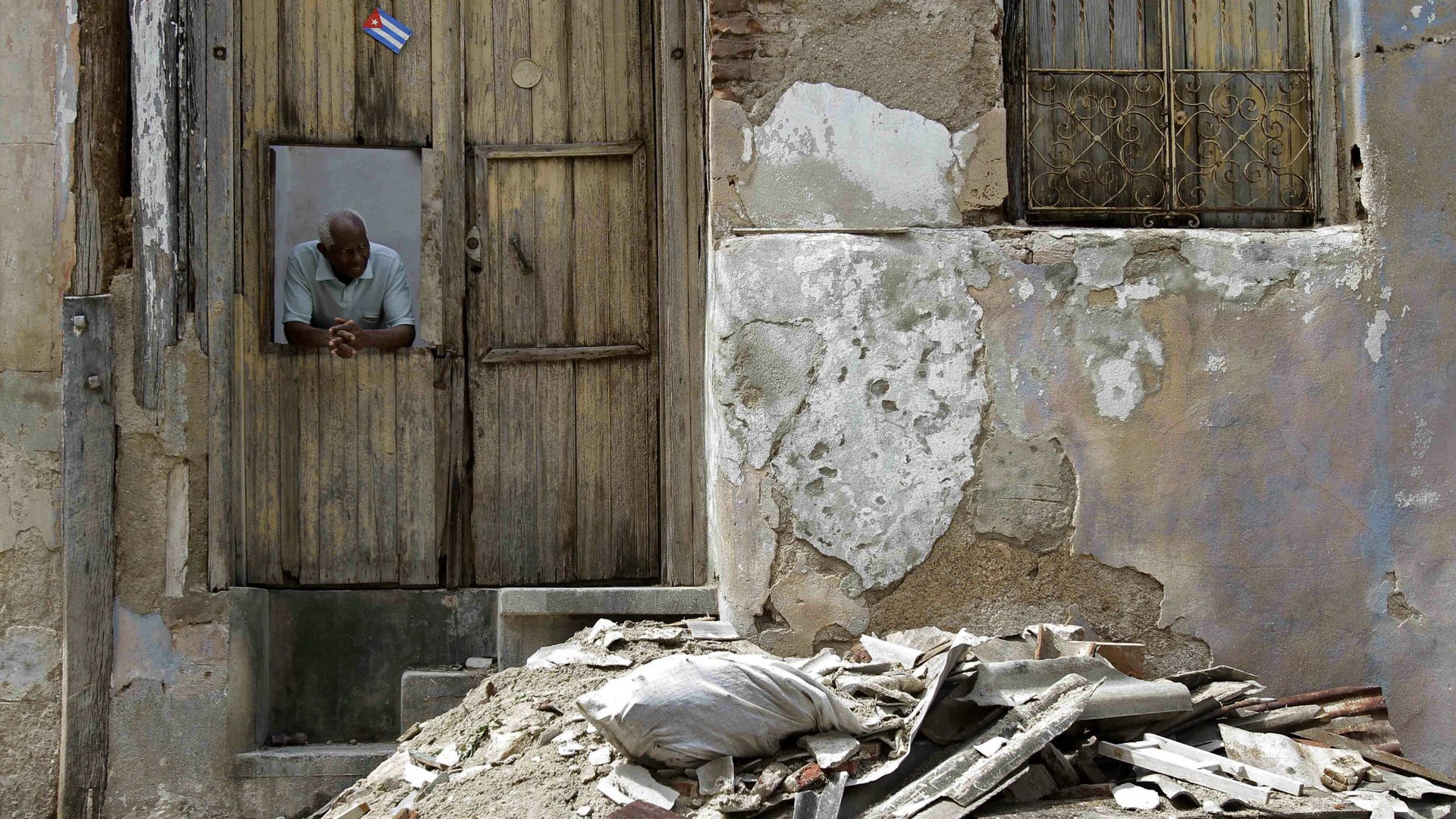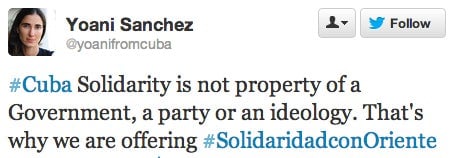Not even Hurricane Sandy’s damage in Cuba will move Raúl Castro toward reform
Natural disasters often have a way of bringing public leaders together and even shifting their political perspective. US President Barack Obama, a Democrat, and New Jersey Governor Chris Christie, a Republican, put partisan bickering behind them as they surveyed damage along the New Jersey coastline. Amid flooded streets in lower Manhattan and south Brooklyn, New York City Mayor Michael Bloomberg (who initially ran as a Republican and is now an independent) surprised many by openly supporting Obama’s candidacy, noting that Obama was more likely to work to combat climate change. In Cuba, however, such disasters tend to have little effect on the government. The Castro regime is unlikely to embrace any political change following Hurricane Sandy’s path of destruction.


Natural disasters often have a way of bringing public leaders together and even shifting their political perspective. US President Barack Obama, a Democrat, and New Jersey Governor Chris Christie, a Republican, put partisan bickering behind them as they surveyed damage along the New Jersey coastline. Amid flooded streets in lower Manhattan and south Brooklyn, New York City Mayor Michael Bloomberg (who initially ran as a Republican and is now an independent) surprised many by openly supporting Obama’s candidacy, noting that Obama was more likely to work to combat climate change. In Cuba, however, such disasters tend to have little effect on the government. The Castro regime is unlikely to embrace any political change following Hurricane Sandy’s path of destruction.
President Raúl Castro clearly hasn’t had a good few weeks. Hurricane Sandy caused at least $88 million in damages in the southeastern province of Santiago de Cuba alone, with total damages potentially reaching $2 billion across the country. The hurricane left at least 11 dead and destroyed more than 180,000 homes in addition to schools, hospitals, and churches. A UN report published this week warned about extensive damage to at least 245,000 acres of Cuba’s fledging agriculture sector, which Castro has been trying to prop up in order to reduce the island’s dependence on food imports.
Meanwhile, the government’s hopes of a large deep-water oil find were dashed when the third exploratory attempt off the coast of Cuba came up dry.
But the bad news doesn’t appear to be shifting Raúl Castro’s very gradual reform agenda, at least not yet. In typical fashion, Cuba’s 81-year-old president deflected attention from Cuba’s domestic problems by stirring up trouble with the US interest section in Havana, claiming that the US was aiding Cubans’ access to the internet and other media sources in order to undermine the government. Castro has also ignored calls from the international community to facilitate aid, relying instead on geo-political allies Venezuela and Russia for shipments of food and supplies. At the same time, the government is trying to limit information about Sandy’s damage, prompting local blogger Yoani Sanchez to promote the usage of the hashtag #SolidaridadconOriente on Twitter to guide other Cubans on how to donate food and supplies to those affected in Santiago:

Despite the government’s isolationist response to the hurricane. there have been small, but important changes in Cuba over the past year: the government has allowed small businesses to open up, legalized the sale of homes and on Nov. 17 unveiled a new immigration policy that will begin to permit some Cubans (though not ones of any political importance) to travel abroad. Additional reforms to expand the sectors in which private enterprise is permitted, boost productivity, and move more activities out of the black market may be on the horizon.
But Sandy is unlikely to speed up their implementation or even usher in a new round of reforms. The Castro government is worried about whether Raul and his cohorts will be able to maintain their grip over Cuban politics as they continue to incrementally open up Cuba’s struggling economy, concerns that will only be exacerbated once Raúl Castro’s Big Brother, Fidel, dies.